Community
Obituary | Marine Raider Charles H. Meacham fought in some of WWII’s most pivotal battles
Charles H. Meacham joined the Marine Corps at age 17, when he was still in high school and needed his father’s permission to enlist. It was 1943, the height of World War II, when U.S. victory was far from certain.
Community Sponsor
Community stories are made possible in part by Peninsula Light Co, a proud sponsor of Gig Harbor Now.
He left active duty two years later, having fought in several of the most pivotal battles in the Pacific Theater.
Meacham, a Gig Harbor resident, died March 2 at age 98. He was an active-duty Marine for only a couple of those years. But as he wrote in his unpublished memoirs:
“After seven-plus decades, no day passes that I do not reflect on my service as an infantryman in the Marine Corps during my 24 months in the Pacific. I clearly got more out of the Marine Corps than the Marine Corps got out of me in the ranks of 1st Platoon Company K.”
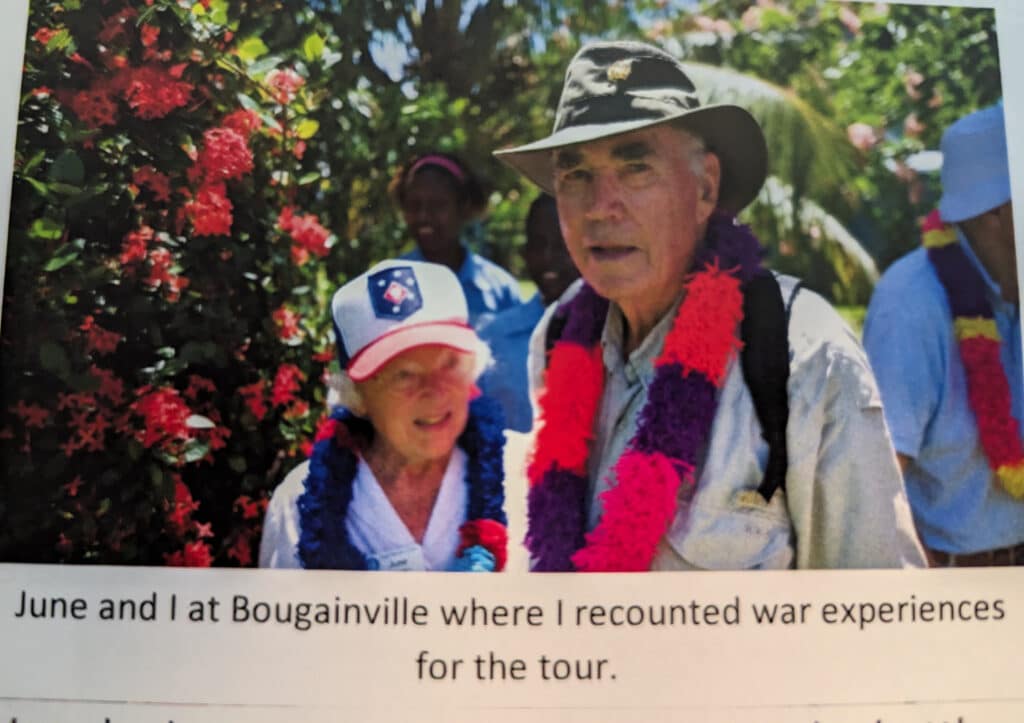
A page from Charles Meacham’s memoirs about his return to Bougainville, decades after he fought there as a Marine Corps Raider.
A family military tradition
The Marines got plenty out of Meacham, too. He was a member of the elite Marine Corps Raiders and participated in the crucial battles of Bougainville, Emirau, Guam and Okinawa.
The first of those, Bougainville, happened when Meacham was just a few weeks past his 18th birthday.
It was by no means unheard of for men younger than 18 to join the military during World War II. His father “had concerns, but proudly gave his consent.”
Both his dad, Vernon Arthur Meacham, and mom, nurse Sara Elsie (Paulson) Meacham, served in World War I. His older brother Walter was already serving. The Meachams can trace their family tree back to ancestors who served in the Revolutionary War.
“There was no question that I would serve as well,” Meacham wrote.
Marine Corps Raiders
He didn’t serve in just any old unit, though.
Meacham first tried to enlist with the U.S. Army paratroopers, according to retired Marine Col. Robert Coates, a longtime friend. Their ranks were full at the time, but a Marine recruiter told him about a new special operations unit called the Raiders.
The Raiders were modeled after British Commando units that proved effective in the European Theater. Meacham wrote that the Raiders emphasized “infantry skill, small-unit tactics, weapons training and marksmanship, rubber boat training in the surf and open ocean, scouting and patrolling and physical conditioning.”
Having completed the rigorous Marine basic training, Meacham reported to the Raider Training Center in Camp Pendleton, Calif., on May 15, 1943. The commander of the training center was Lt. Col. James Roosevelt, son of President Franklin Roosevelt.
The weeks that followed consisted of what Meacham called “the toughest training the Marine Corps could devise.” The war that followed was even tougher.
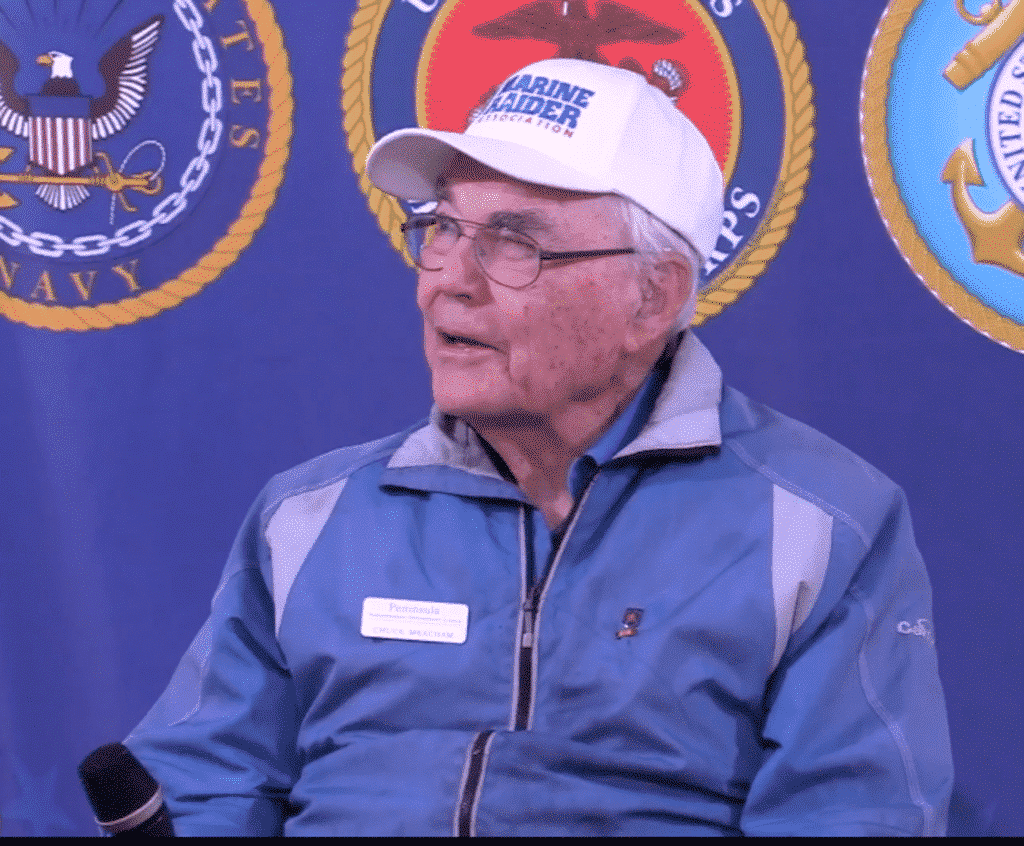
Charles H. Meacham at the 2021 Gig Harbor Veteran’s Day celebration. Photo by Ed Friedrich
War stories
Meacham’s memoirs don’t go into great detail about the horrors and the heroics of the island-hopping campaigns fought by he and his fellow Marine Corps Raiders. He didn’t often talk about those things either, said his son Charles P. Meacham of Gig Harbor.
“The thing he did was talk about the very, very harsh conditions that the Marine Raiders in particular took on,” the younger Meacham said. “And how basically surviving those, when so many of his other Marine friends did not survive, gave him a real appreciation for life and stepping in full force whenever the opportunity arose once he got out.”
Not that he didn’t tell war stories.
There was Thanksgiving 1943, when Meacham and his 3rd Marine Raider Battalion were on Bougainville. The Corps provided a Thanksgiving feast, which was Meacham’s first hot meal in 25 days.
“After eating I immediately threw up,” Meacham wrote, presumably because his stomach had become unaccustomed to such rich food. “There was only one thing to do, get back in line and try again. The second time, my dinner stayed down.”
Okinawa and heading home
Another meal-related war story took place on Okinawa, where the Raiders were among the first invasion wave in one of the most brutal battles of the war.
While on a reconnaissance mission behind enemy lines, Meacham’s company commander warned his Marines that if anyone fired a shot overnight, they better produce a body or face court-martial for endangering the group. A shot was fired in the night, but nobody got court-martialed. They found the body of a “huge pig” the next morning.
“The Raider farm boys got out their knives and went to work,” Meacham wrote. “Oh boy, what a pork barbecue.”
The war came to an end for Meacham during that Okinawa campaign. Pfc. Meacham began suffering symptoms of what he figured was a cold. He ignored the symptoms until his temperature spiked to 105 degrees.
He passed out on a hill on Okinawa and woke up on an airplane headed home. It wasn’t just a cold, it was a very serious lung infection that required seven months of recuperation. By the time Meacham recovered, the war was over.
Postwar accomplishments
After the war, Meacham married his high school sweetheart June, who was his wife for 74 years. He earned a bachelor’s degree in wildlife management and launched a career that took him to the highest levels of government service.
Having been raised in the Sierra Nevadas in California, Meacham maintained a lifelong love of the outdoors, particularly fishing and hunting. He eventually took a job with the then-Territory of Alaska. Before and after statehood, he played a key role in establishing regulations governing Alaska’s fisheries.
Meacham later served as commissioner of the U.S. Fish & Wildlife Service, as well as deputy assistant secretary of both Fish & Wildlife and the National Parks Service, during the Nixon Administration.
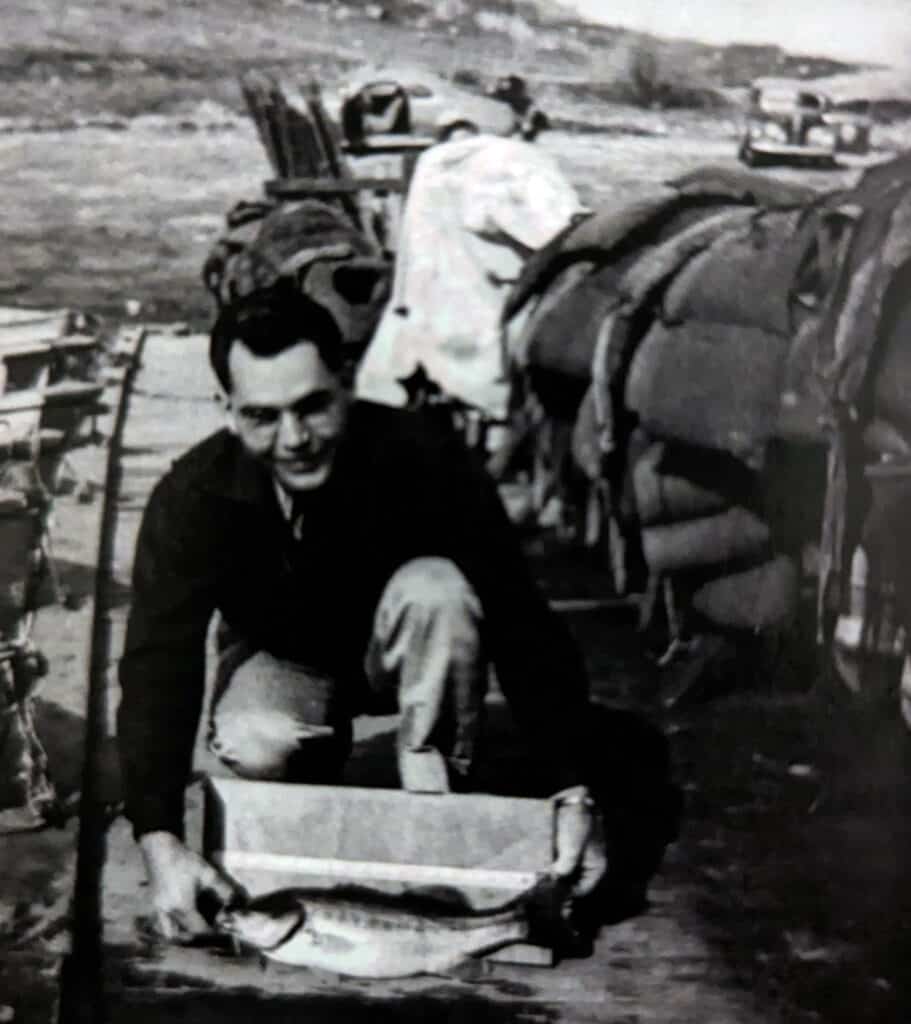
Fishing and other outdoor pursuits were Meacham’s passion from his childhood. Photo from Meacham’s memoirs.
During his remarkable life, Meacham:
- Survived a plane crash in the British Columbia wilderness, pulling his unconscious boss from the wreckage.
- Negotiated international fishing treaties while working in ranking positions for the state of Alaska and the federal government.
- Reportedly helped convince Ted Stevens to accept Alaska Gov. Walter Hickel’s appointment to the U.S. Senate. Stevens served in the Senate for more than 40 years.
- Founded a successful consulting business, traveled the world and raised two sons, Charles P. Meacham and Bruce H. Meacham.
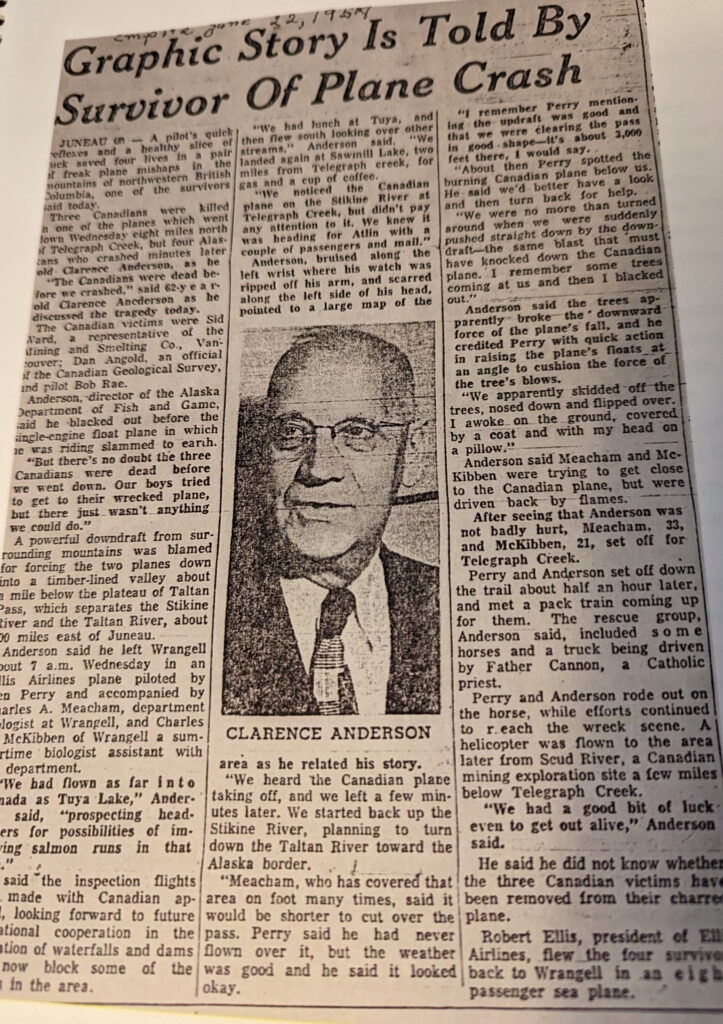
An Associated Press story in the Juneau Empire newspaper recounts how Charles H. Meacham survived a plane crash in the mountains of northwestern British Columbia in 1958.
Giving back to the Marines
Later in life, he became president of the Marine Raider Association and founded the Marine Raider Foundation to support both Raiders of his own generation and modern Raiders. The Marines reinstated the name Raiders for its Special Operations Command in 2015.
Col. Coates, a Raider and one of the modern military’s most accomplished special operations officers, called Meacham a “national treasure” during a recent conversation.
Modern Raiders revere Meacham and his World War II comrades, Coates said. He was living proof of the phrase, “there’s no such thing as an ex-Marine.”
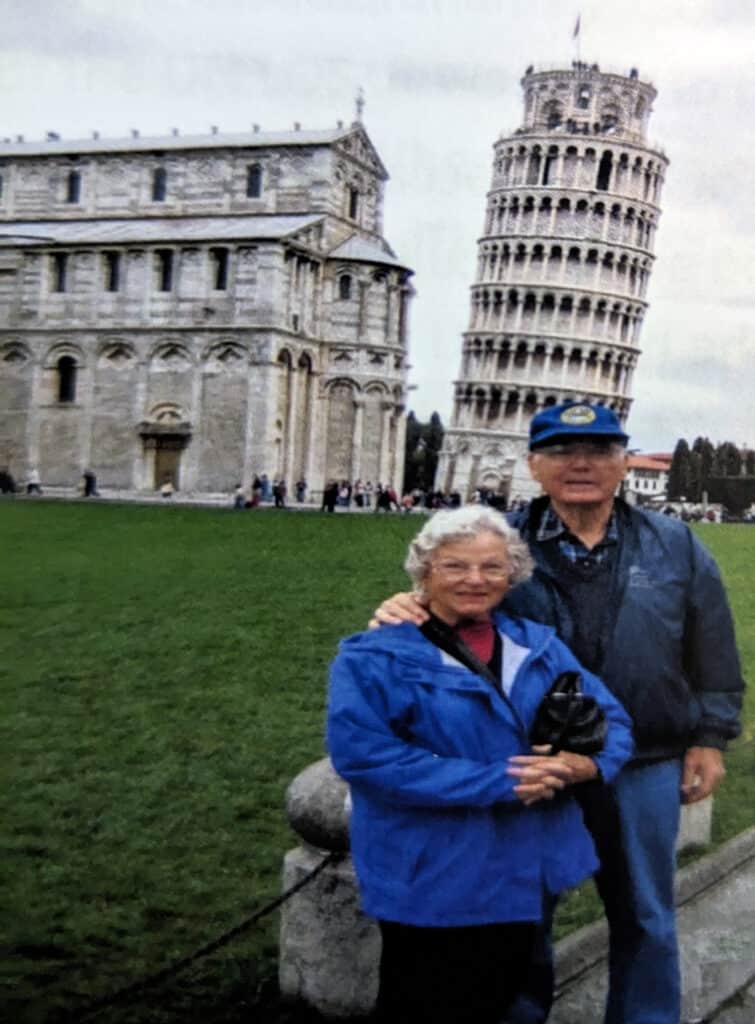
The Meachams in front of the Leaning Tower of Pisa during their travels in retirement. Photo from Meacham’s memoirs.
“He would come visit our unit, we’d put a weapon in his hand and it was like he never forgot how to shoulder a rifle or anything,” Coates said. “The Marine Corps discipline … the Marine Corps spirit, the mannerisms, stayed with him to the day he died.”
Meacham requested that his survivors not hold a memorial service in his honor, according to an obituary they submitted to Gig Harbor Now.
They asked that anyone wishing to honor his memory make a donation to the Marine Raider Association or the Alaska Chapter of the American Fisheries Society.

